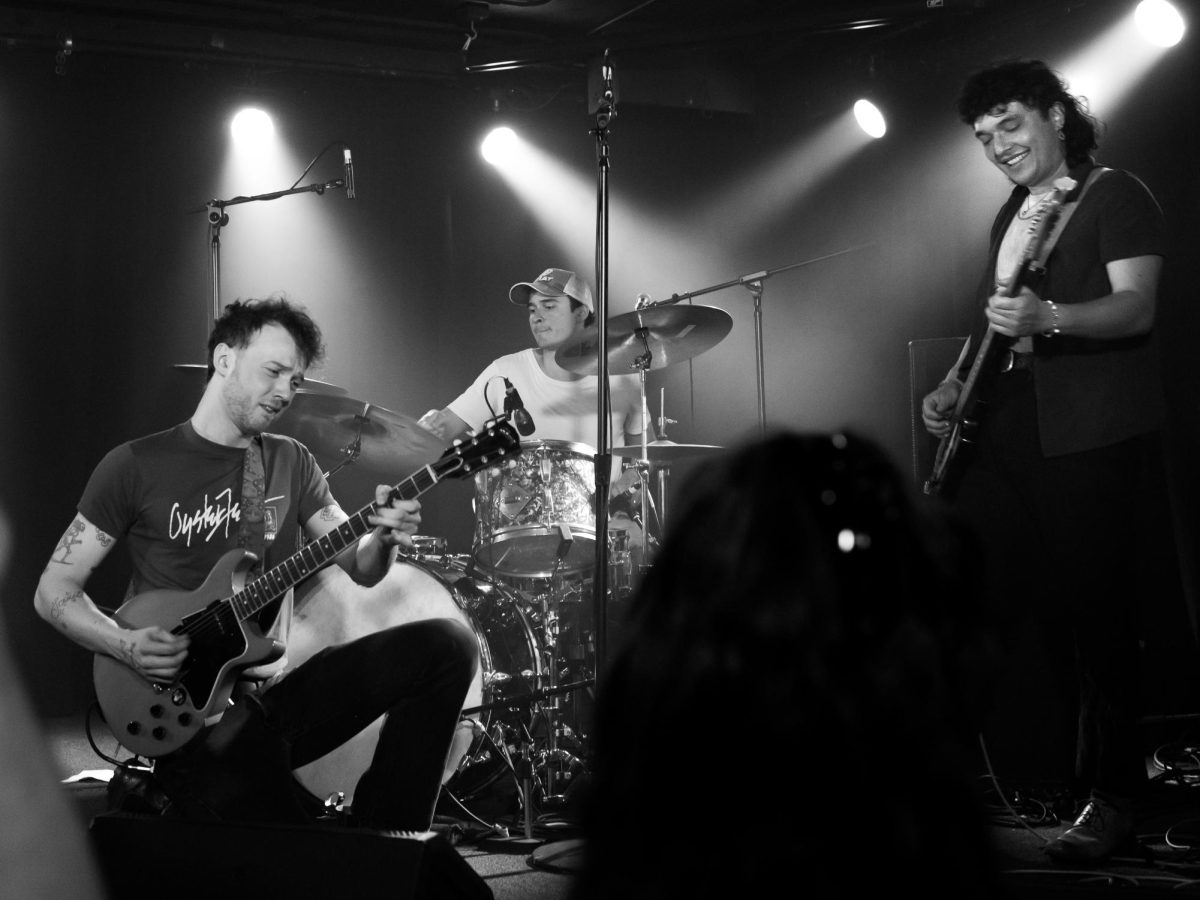Last Friday, the Stony Island Arts Bank showcased the work of international female art collective Hyphen-Labs. Their newest project, NeuroSpeculative AfroFeminism (NSAF), attempts to revive the aesthetic movement of Afrofuturism—a magical-realist science fiction exploration of black culture and history—by incorporating contemporary design, neuroscience, and technology to preserve black culture in the digital age.
“We’re doing cognitive impacts and social, psychological, and anthropological research to see if, through VR [and] increased exposure to content created by people of color, that somehow can decrease prejudice and bias,” said biologist and artist Ashley Baccus, one of the four artists at Friday’s event.
The NSAF project is highly ambitious; it places real-world objects alongside a virtual reality (V.R.) “AfroFeminism” experience. Unfortunately, Friday’s promised V.R. demonstration flopped; the headset would not function properly, disappointing about 30 expectant attendees.
NSAF’s products seek to address the daily needs of black citizens in the digital age. One such product was a pair of huge, pink door-knocker earrings that record video on command. These conspicuous earrings, the group explained, could help many black women feel more secure in their everyday life. Another innovation was a digitally-printed headscarf, inspired by traditional African headscarves. What is more, the headscarf technology combats face recognition algorithms by overloading the software, rendering the wearer untraceable. In an age of constant surveillance, the headscarf works to make black women feel more secure.
Hyphen-Labs’s feature creation was a mixed-media, chiefly V.R. “neurocosmetology” experience. The viewer enters a space—half neurosurgery bay, half hair salon—where, the event description stated, “black women pioneer brain modulation and cognitive enhancement by embedding electrodes into extensions and braiding techniques.” The need for a hair salon, according to the group, stems from technology designers’ failure to produce headset designs that accommodate larger hair.
When Hyphen-Labs was describing the fictional characters who inhabit the “neurocosmetology” salon, they introduced a black woman named Techno Africanum-Culturist, a billion-year-old “trans-human.”
“What is a black woman who’s a trans-human?” an artist rhetorically asked the audience. “[It is] where your technology is inextricably linked to your ‘self.’” Techno Africanum-Culturist, for example, reportedly holds the “balance of all of the universes in her larger-than-life silver afro.”
The project, however, had some striking weaknesses. Headsets continued to malfunction during the event, and the products—though they claimed everyday utility—were impractically niche. Hyphen-Labs, moreover, includes only one black member.
Some of Friday’s attendees appeared uncomfortable. One woman in the audience later asked, in reference to the digitally printed headscarf, “as women, whether white, black, Asian, we all are vulnerable, so why did you specifically choose one particular group when pretty much everyone could wear [the headscarf]?”
Acknowledging that I am not a member of the target demographic, I can’t judge the appropriateness of this kind of artistic creation, but the project nonetheless struck me as drawing on cultural stereotypes in dangerous ways. There is no question that black culture must be preserved and promoted, but there must be a way to express its spirit without reasserting only its most visible tropes into the conversation. It felt odd that the artists would choose to address larger social issues through capitalist consumerism and by reducing women to their cosmetic choices. I get the unshakable feeling that a black futuristic woman’s “larger-than-life silver afro” is analogous in this situation to, say, a Jewish futuristic man’s “larger-than-life silver yarmulke.”







